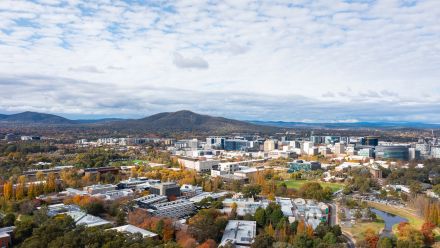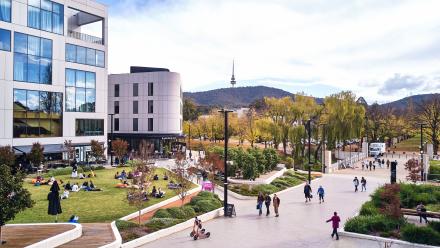Helping families in times of crisis
The Australian bushfires of 2019-2020 were a fearful time for many, especially for expecting mothers who were unsure how the exposure to smoke and stress would affect their unborn babies. These uncertainties increased as the COVID-19 pandemic followed.
Through the generosity of our donor community, including the Australian Medical Council, the Finley River Fund, and a group of The Australian National University (ANU) alumni from Fiji who banded together to donate, an ANU-led study is addressing these uncertainties.
Mother and Child 2020 (MC2020) is a multi phase, collaborative project started in 2020, involving a multi-institutional team of 30 researchers, three local health districts, and Indigenous health services in the ACT and Southeast NSW region. It aims to identify the health challenges and long-term implications for these affected families, and advance knowledge, policies and practices in responding to future crises. The effects of the bushfires on Aboriginal and Torres Strait Islander women and their babies are given particular focus as a severely affected group within this region.
MC2020 has consisted of online surveys with over 3,300 responses so far, with close to 50 mothers having further in-depth interviews to date. The initial four surveys focused on the effects of the bushfires on mothers and their pregnancies.
Mothers exposed to the bushfires experienced significant negative impacts on their mental well-being, with additional impact occurring through the pandemic. More than 75 per cent of participating women reported at least one acute bushfire exposure, and 63 per cent reported severe smoke exposure. These participants had higher depression, anxiety, and stress compared to the Australian average. Findings have highlighted the importance of primary health care for pregnant women, newborns, and mothers during extreme environmental events.
Data from the fifth survey, collected at the end of 2022 and studied in 2023, has now accounted for how fathers and families as a whole have been affected. The team leading this fifth survey, Dr Liana Leach, Dr Amita Bansal, and Dr Amy Dawel, collected data from 289 mothers and 93 partners, which allowed them to explore how the events recorded in the early waves of the MC2020 study are impacting participating couples – their relationship, their parenting, and their mental health and well-being.
A sixth survey focusing on the well-being and health effects on children born during these times of crises is expected to follow in 2024. The MC2020 team hopes that further funding will also allow for in-person health checks on the children from participating families.
The generosity of donors to this study reflects the desire to improve interventions and outcomes of those most affected by natural disasters, even as they increase in frequency. Together, the MC2020 researchers and the ANU donor community empower women, their families, communities and health care professionals to raise their concerns and tell their stories.
The work that has been done has been done with a small budget. Without the philanthropic support that we’ve had to date, we wouldn’t have been able to achieve what we have.
- PROFESSOR CHRISTOPHER NOLAN, ASSOCIATE DIRECTOR RESEARCH, ANU SCHOOL OF MEDICINE AND PSYCHOLOGY, AND PRINCIPALINVESTIGATOR OF THE STUDY


